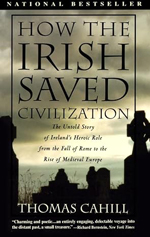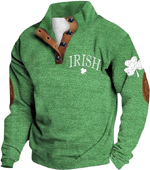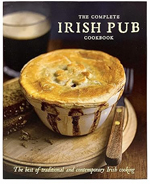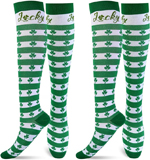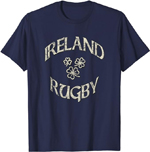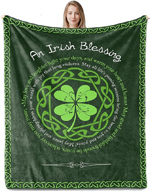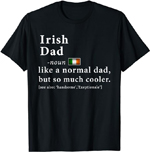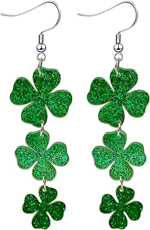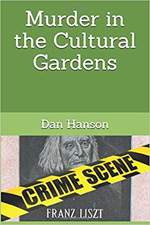According to Dictionary.com, "The Irish language, known as Gaelige in Irish, is a Celtic language. Records of Irish, the ancient and historic language of the Irish people, date back to the fifth century. Today, it's estimated that there are nearly 75,000 daily Irish speakers in Ireland, with over 1.5 million learning it as a second language. It is an official language in Ireland, and if you have ever visited the country, you will see the language on road signs and government documents.
While you may not know any Irish yourself outside of fáilte ("welcome") or sláinte ("cheers"), some of the English vocabulary and slang you use comes from or is influenced by the Irish language. Irish people have immigrated to English-speaking countries, particularly England and the US, for centuries." Here are a few examples. 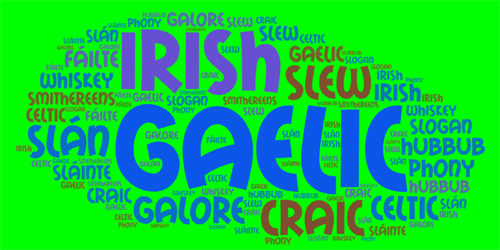
Smithereens
If you've ever knocked a glass off a counter and shattered it, you've experienced breaking something into smithereens. Smithereens means "small pieces, bits."
The word smithereens is first found in Irish English in the late 1700s. While its origin isn't exactly known, smithereens may come from smiodar, which means "fragment." And -een is a diminutive suffix (meaning it denotes something is small). Taken together, smithereens refers to very small fragments. The word is often used in the phrase blown to smithereens.
Galore
Galore means "in abundance." The word galore comes from the Irish expression go leor. Leor means "enough" and go means "to," so, literally "to enough." The word was rendered as galore in English in the early 1600s.
In Irish, ceart go leor is an expression roughly equivalent to OK.
Slew
Slew can be the past tense of slay, but as a noun it can mean "a very large number or quantity," as in "There is a slew of folks waiting in line for the new savory ice cream place."
The word comes from the Irish sluagh, meaning "crowd, throng, army, host." In Irish folklore, the slua or sluagh are said to be restless ghosts or evil spirits, depicted as a flock of birds, who cause trouble for the living by destroying property or killing domestic animals. Yikes.
Slogan
A slogan is like motto or catchphrase for such things as a company, product, political campaign. It lets others know what they're all about. That's what slogans were also used for in the ancient British Isles-sort of.
Slogan comes from slaugh-ghairm, a word in Scots Gaelic, a Celtic language spoken in Scotland that developed out of Middle Irish. Now, we've already learned about the sluagh in slogan. It means "crowd" or "host." Ghairm means "cry" or "shout." Taken together, a slaugh-ghairm is the cry given by Celtic warriors in battle. Usually, these early slogans would be the last name of the clan or the name of their place of origin.
Slaugh-ghairm was adopted into English as slogan by the 1670s. By the early 1700s, a slogan wasn't something just used on the battlefield but also in political realms, much like today.
Hubbub Hubbub is "a loud, confused noise," as created by many speakers. More generally, it's an "uproar." And, of course, the word has a great history.
It's thought to come from the old Irish interjection Ub! Ub! Ubub! which conveyed contempt. This may be related to an ancient Irish war cry, Abu!
Before hubbub had the general meaning we know it by today, in the 1500s it was specifically associated with a certain kind of Irish rowdiness.
Phony
Phony is a word that means "fake" or "made up." Although the exact origins of phony are unknown, it's likely the word comes from an old con known as the fawney rig. Fawney is from an Irish word for "finger ring," and rig, an old term for a "trick" or "swindle."
Here's how it worked: the swindler would "accidentally" drop a piece of cheap jewelry in front of their mark, or target. Then, they would pick it up while expressing relief that they hadn't lost such a valuable ring, pretending it was worth a lot (as if made of gold). If they were lucky, they'd sell it to the mark for much more than it was worth. By the 20th century, the spelling of the word was eventually modified from fawney to phony and came to refer to anything fake or counterfeit.
Whiskey
The word whiskey is short for whiskeybae, from Irish uisce beatha or Scots Gaelic uisge beatha, "water of life." These terms, however, are ultimately translations of the Latin aqua vitae, also "water of life," an even older term for alcohol. Whiskey was adopted into English in the early 1700s. Whiskey is also spelled whisky. Sláinte! (Cheers!)
Craic
This one might not be in your current vocabulary, but Craic, pronounced like crack, is a good, all-purpose Irish word to know. It means "fun, amusement, or conversation." It's actually based on the English crack, as in wisecrack, but the word is thoroughly Irish. In Ireland, a fun night out could be said to be good craic. The expression What's the craic? can be a casual greeting, like What's up?
Slán! (Goodbye!)
Back to Top
Back to Cleveland Irish | 

